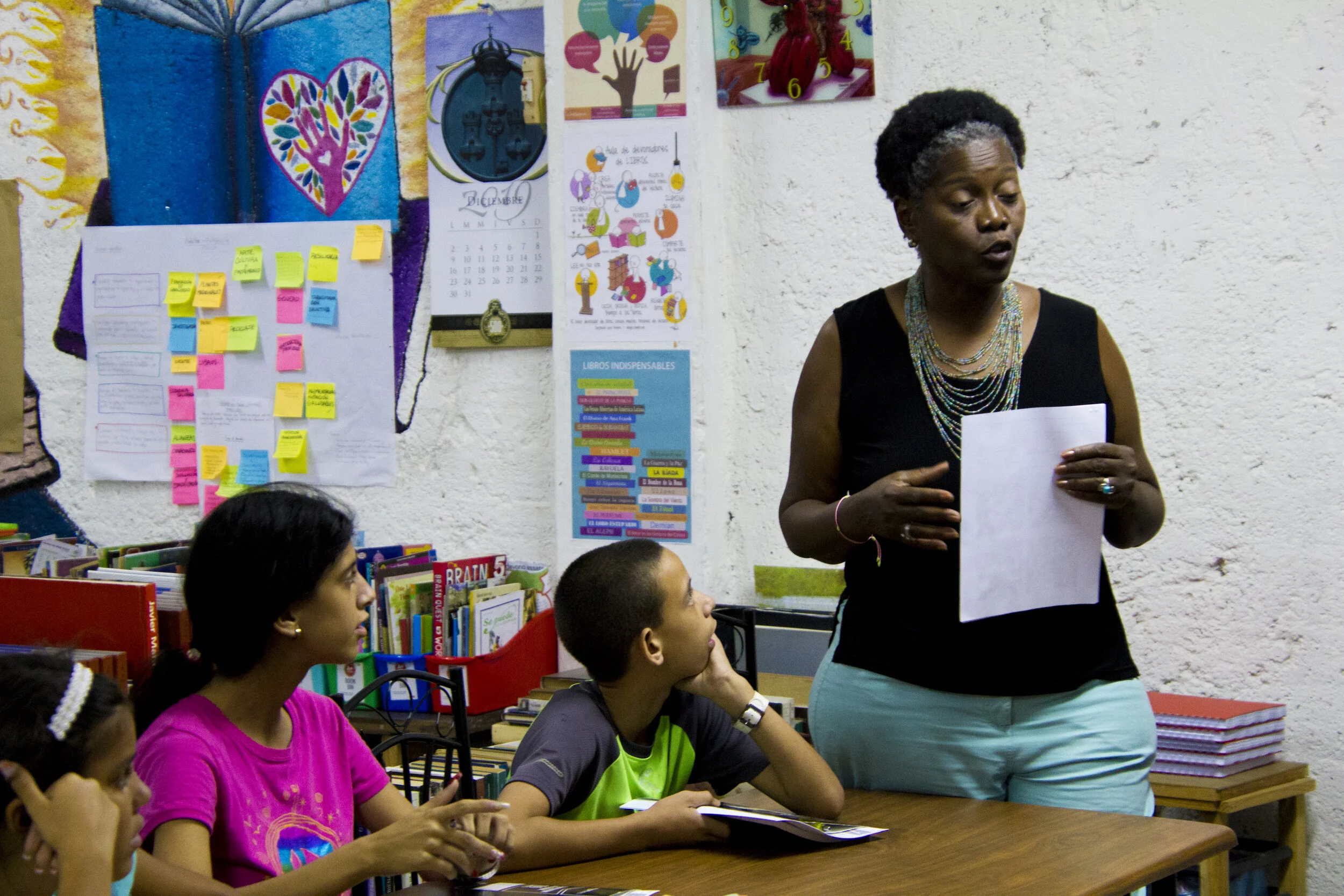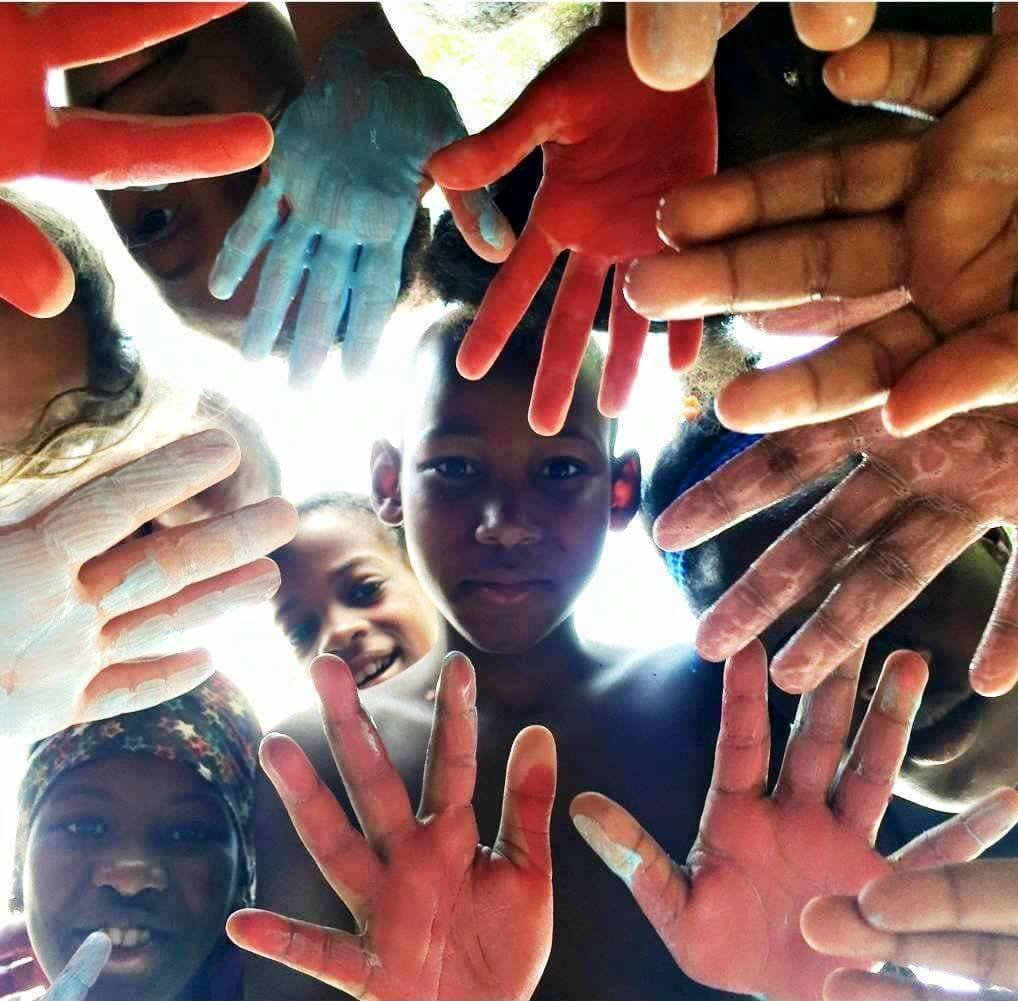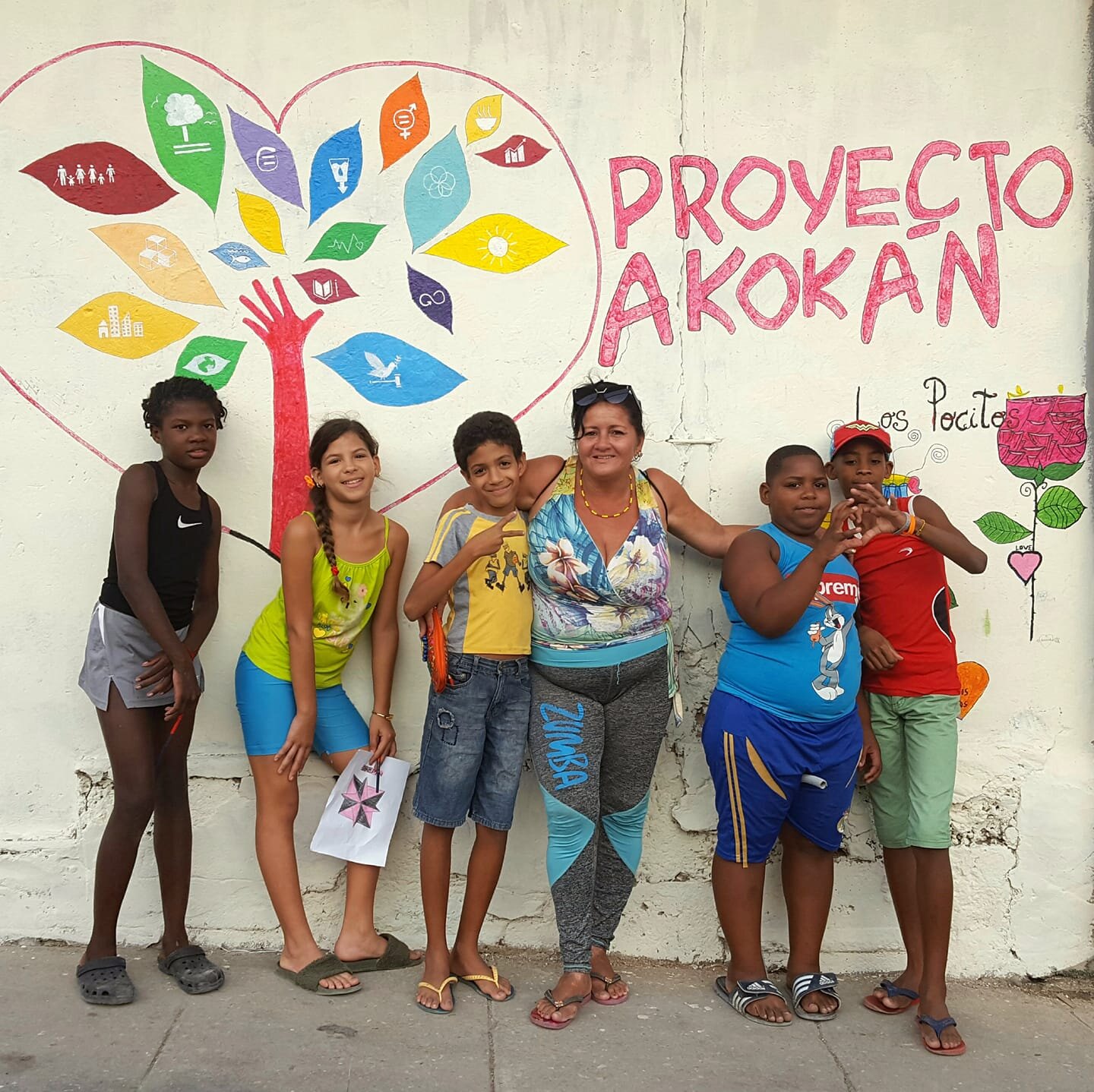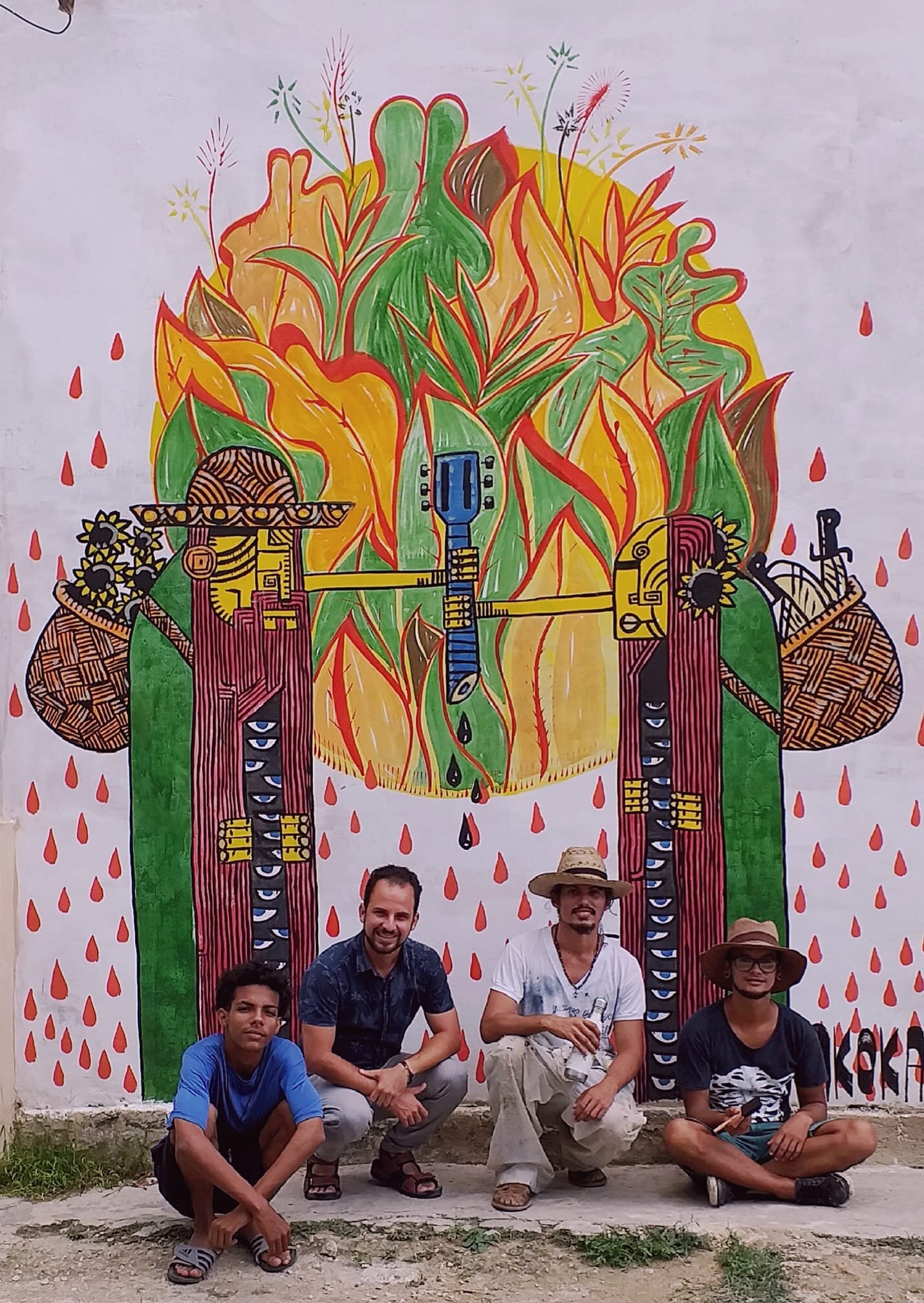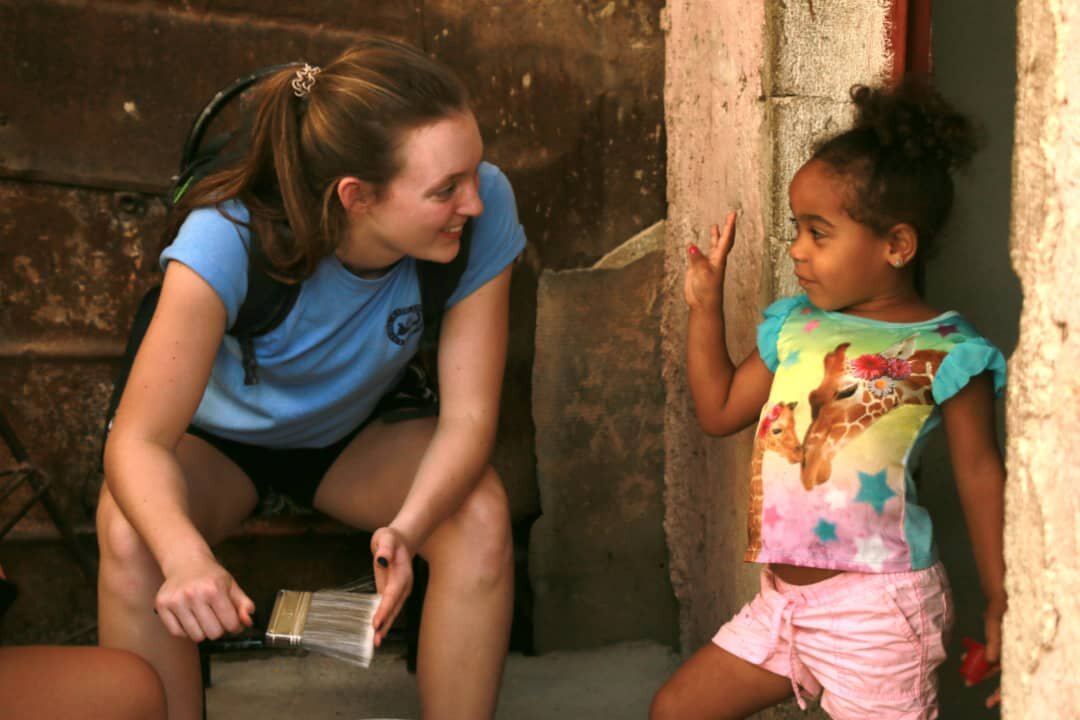Proyecto Akokán: A Community Project from the Heart
Akokán is a word from the West African language of Yoruba that can be translated to “from my heart.” The use of this word is fitting for Proyecto Akokán since it is from the heart that all the ideas and actions of their community projects come from.
Proyecto Akokán’s founder, Michael Sánchez Torres (far right), with a group of students and faculty from NYU’s College of Dentistry.
EEAbroad was lucky to meet the founder of Proyecto Akokán, Michael Sánchez Torres, almost four years ago. This project works in a very isolated community, far from the city center, so it is not very easy to discover. We heard about them through the admirable work and impact that they achieve in their community and we knew right away that this really was work done from the heart and that is exactly the kind of work that we wanted to support.
Proyecto Akokán is a nonprofit civil initiative that works with, for, and from the Los Pocitos community that is located in the Marianao neighborhood of Havana. During the late 19th century, Marianao was a focal point of wealth and industry complete with ceramic, cement, and perfume industries, as well as hotels, casinos, and over 180 mansions. The crystal-clear waters of the Quibú River and dozens of natural springs also provided delicious relief from the heat.
Los Pocitos, Marianao, Cuba
Los Pocitos Today
The social landscape today is very different. Now considered an unofficial community, Los Pocitos lacks regular trash collection and there are obstacles in accessing running water. A dam upstream and the lack of a proper sewage system has made the Quibú River dirty and sadly no longer suitable for swimming on those hot Havana days. Los Pocitos has become one of the most underdeveloped neighborhoods in the entire city. It can be characterized as a squatter settlement for Cubans that have immigrated to Havana for better opportunities - most come from the eastern provinces of Camaguey, Santiago de Cuba, and Guantanamo.
Yet Los Pocitos is also a bastion of culture. It holds one of the highest concentrations of Abakúa temples in Havana - a mutual aid society with strong religious elements only found in Cuba. Four different languages are also spoken alongside the various religions practiced here. The archeological remains of the former mansions form part of the heritage of Havana and the numerous natural springs hold vital potential as drinking water sources.
Teacher Beatriz Quintana Valle teaching English to the community children.
Akokán Offers a Different Reality
Proyecto Akokán utilizes creative solutions, artistic workshops and events, and the participation of community members to work towards the integral development of the community. Their goals always take into account social change, social equity, the protection of local heritage, as well as environmental, social, and economic sustainability.
Proyecto Akokán works mostly on the community’s streets, but their symbolic headquarters and locale for their workshops is a small library located under the stands of an athletic field that is the center of community life. This library was built little by little with the effort of the project leaders and the help of the community.
Channeling the community’s energy and focus on creative endeavours offers an alternative to other unproductive or illegal activities. In the words of Dianelys, an Akokán professor, the workshops “open the world so [people] see it as more diverse and more entertaining.”
A Network of Allies
Proyecto Akokán does not focus on any specific group because they believe that everyone matters. Children, teenagers, and young people are most attracted by the activities of the project but other marginalized groups, such as the LGBTQ+ community and senior citizens, also have a place in the Akokán community.
Volunteering is an integral part of Proyecto Akokán’s work, with university students, recent graduates, and professionals volunteering their time and sharing their knowledge and experiences with the community. To commemorate Havana’s 500th anniversary in 2019, Akokán partnered with local artists assisted by Cuban and international students to paint 500 houses in Los Pocitos, with the objective of beautifying the neighborhood and thus building pride. Akokán also collaborates with entrepreneurs, Abakúa leaders, Cuban artists, and other community projects to be able to expand its field of action and increase its impact.
At EEAbroad, we are committed to positive social impact. It is our ethos, and we fulfill that driving belief by working with local partners that make a long-lasting change in the most vulnerable communities. We believe in social change and the power of culture and community leaders to focus people’s energies into positive and useful actions to build a better world. Through our partnership with Proyecto Akokán, our program participants have helped to support a variety of leading projects and activities, from youth field trips, baking classes, and community gardens, to music concerts, conga lines, tree planting, and English classes.
Our continued collaboration with Proyecto Akokán is something that we are incredibly proud of and we are excited to continue to connect people to these amazing and impactful community projects.
Proyecto Akokán serves one of the most underdeveloped neighborhoods in Havana and those who are the most disadvantaged in normal times are now being hit even harder by the consequences of the current crisis. Since we can’t work alongside the Proyecto Akokán community in person right now, we are actively collecting monetary donations in order to continue to support their transformative work from a distance.
With enough support from the EEAbroad community, we can ensure that Proyecto Akokán will be able to work alongside us again when we are able to return to Cuba.
Learn more about our humanitarian assistance efforts in Cuba.




